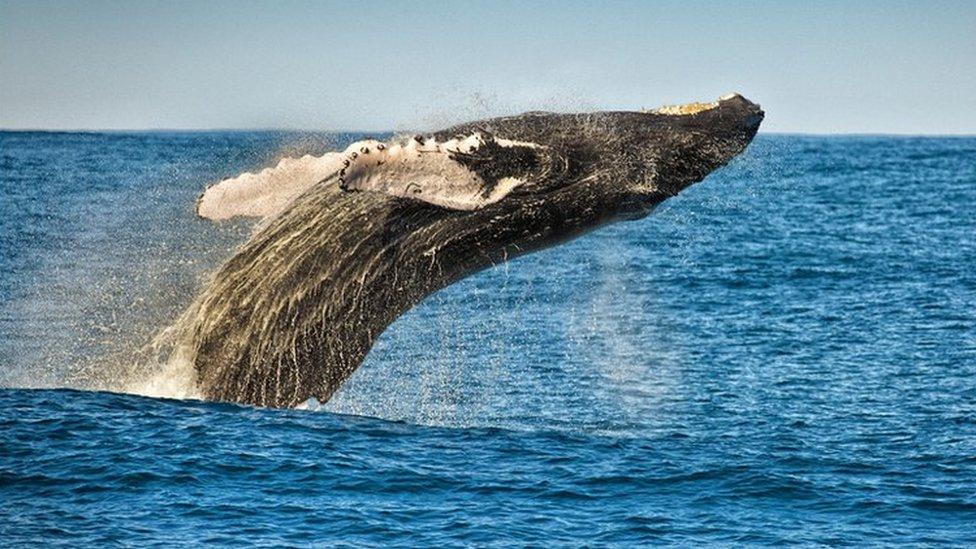Megalodon tooth found - but what is a megalodon?
- Published
- comments
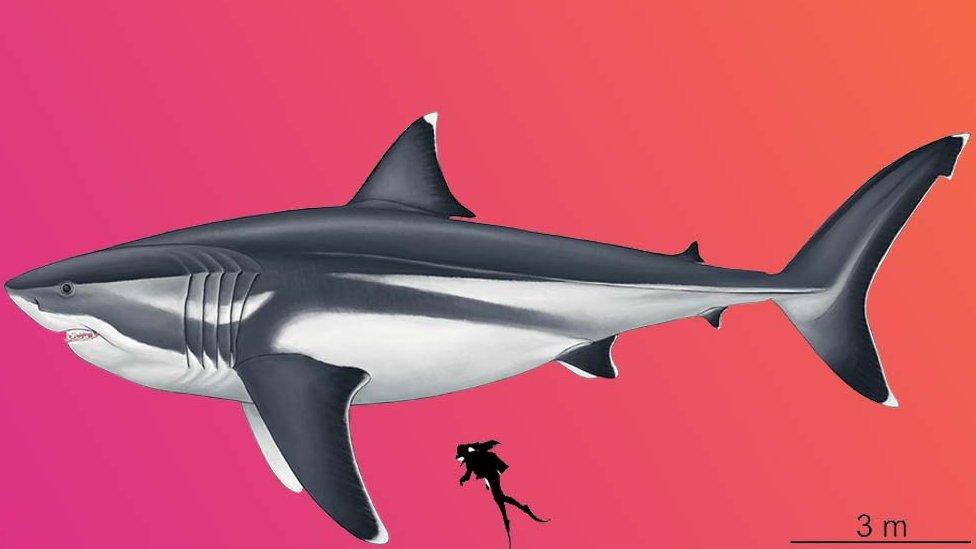
A fossil hunter has found a huge shark tooth in South Carolina, America.
The tooth is a massive 6.45 inches and belonged to a prehistoric shark called a Megalodon.
The Megalodon was a gigantic prehistoric shark that lived in warm seas millions of years ago and is thought to have been one of the largest fishes ever to exist.
Matthew Basak found the tooth which weighed 1.3 kilograms while out fossil hunting looking -and initially found a smaller tooth, under which was the larger one.
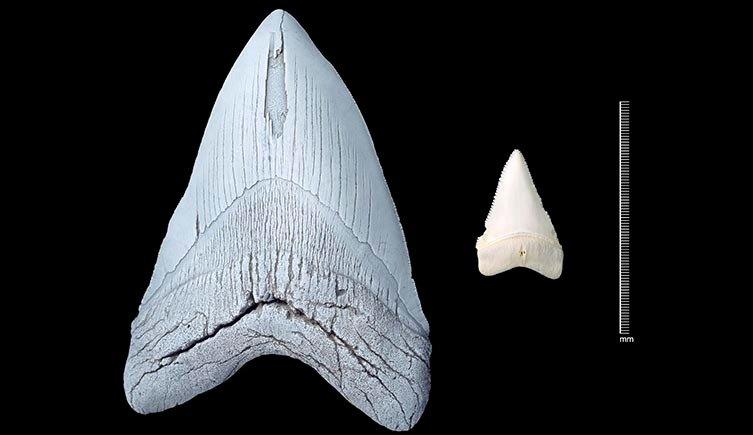
This is a megalodon tooth next to a great white sharks tooth
The word Megalodon simply translated means - large tooth.
Megalodons could grow to about 59 feet long - that's longer than four double-decker buses or three times bigger than the biggest recorded great white shark.
Until a new study in 2019, it was thought that the Megalodon went extinct 2.6 million years ago, however, the 2019 study in the Journal of Life and Environmental Sciences found it was probably more like 3.6 million years ago.
Most fossils that are discovered belonging to the Megalodon are teeth. This is because like sharks today, the Megalodon would have lost teeth throughout its life.
Depending on what they eat, sharks lose a set of teeth every one to two weeks which means there are plenty of teeth left behind in the ocean for fossil hunters to find.
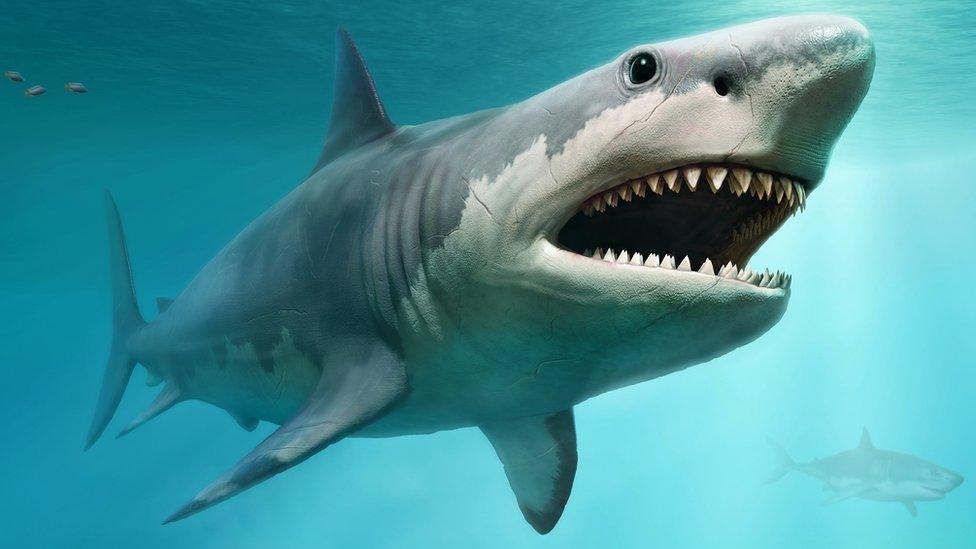
This is what some scientists think the megalodon looked like!
According to the Natural History Museum's Emma Bernard, who curates the fossil fish collection, Megalodon teeth could be as big as 18 centimetres long!
They would have eaten lots of meat, in particular other sea mammals like whales and even some other sharks.
In past, some people have claimed that the Megalodon might still exist but Emma said: "No. It's definitely not alive in the deep oceans. If an animal as big as Megalodon still lived in the oceans we would know about it".
- Published28 January 2021
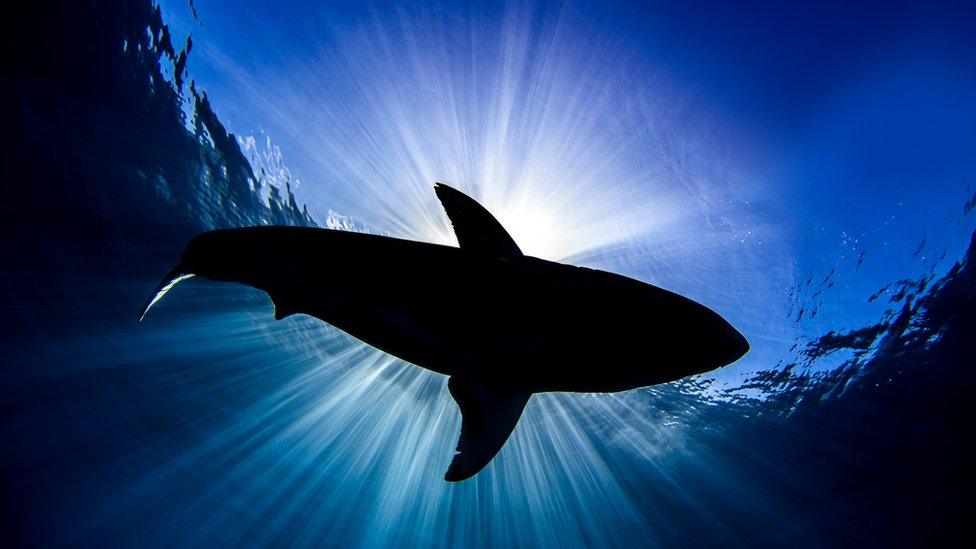
- Published2 April 2020
